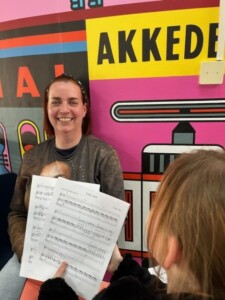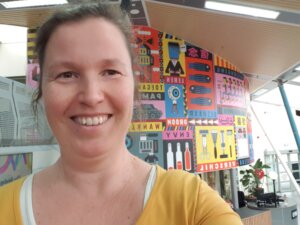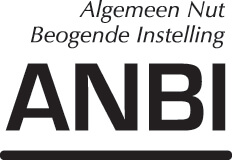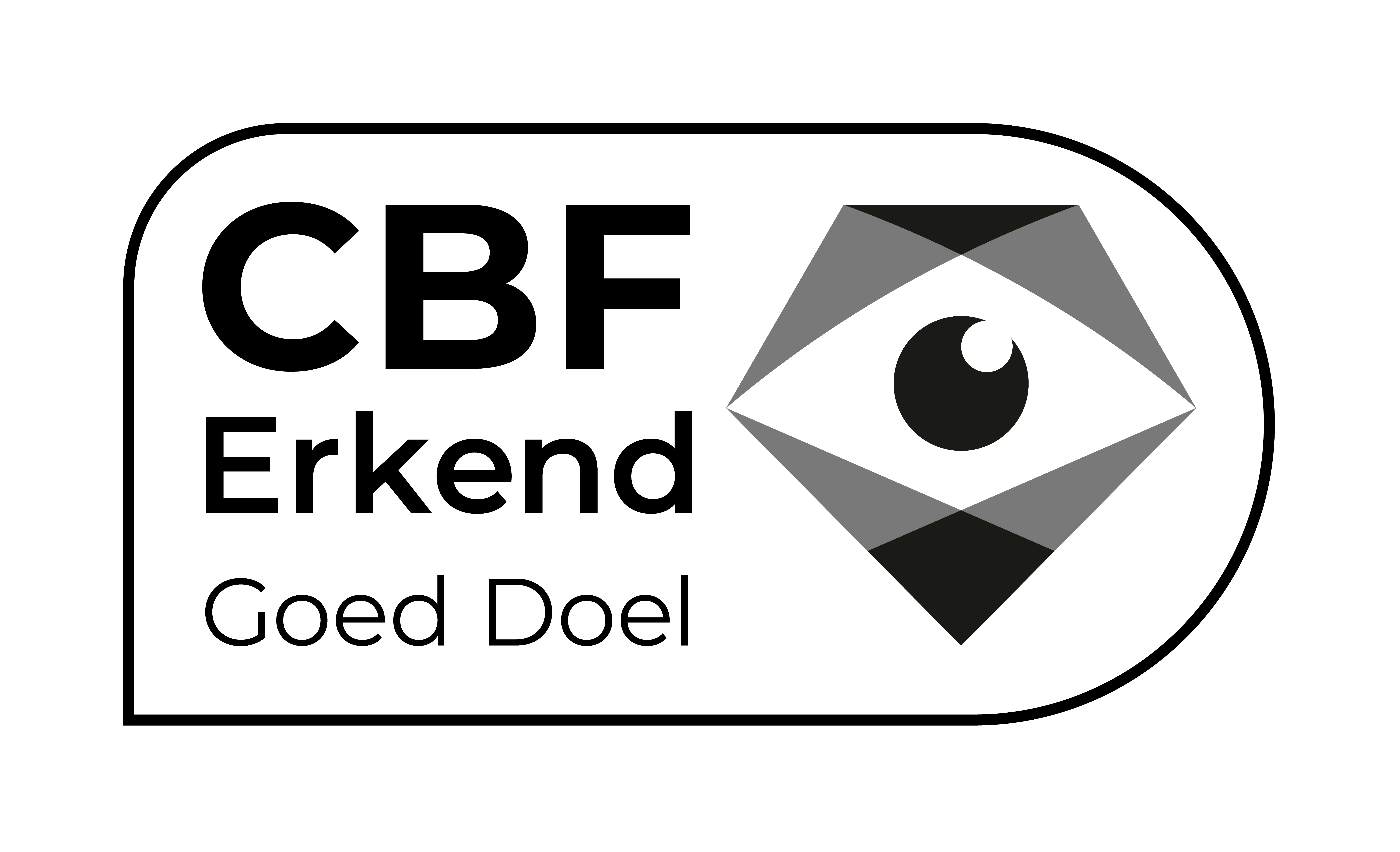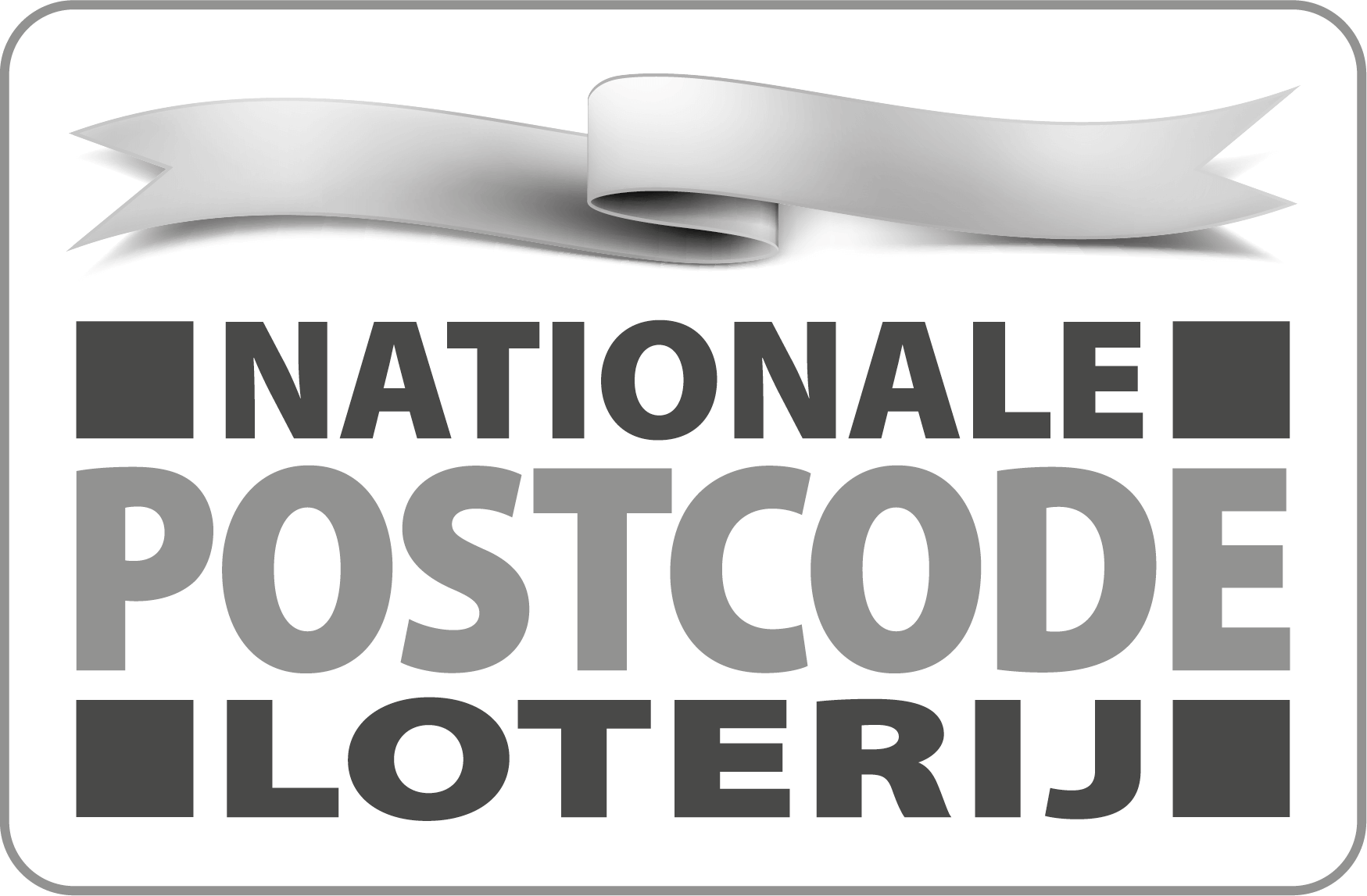News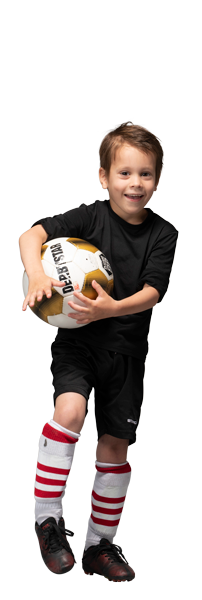
Aurora Belén (14) from Breda is now playing her third season of senior-level hockey at Den Bosch. She's in the girls' under-16-2 team and dreams big: the Dutch national team. Her mother, Maureen (51), is her rock. Together, they're a true powerhouse who gives everything to the sport and, more importantly, has a lot of fun doing it.
Eat on time, rest on time
Maureen: "It's pretty tough, training three times a week in 's-Hertogenbosch and also competing on the weekend. How do we do that? Rest on time, eat on time, have everything ready by three o'clock, and make sure school is all arranged. Then we're on our way."
Aurora Belén: "School is going well. I'm in the third grade and have chosen economics as my major. I often do my homework in the car or just at school."
From baby sports
Maureen: "She was only three when she was allowed to play indoor hockey with older children. I first saw her talent in soccer hockey, but she was always playing with a ball at home too. Ultimately, she chose hockey, and from the age of six, that was her full focus."
Lost everything in the game
Aurora Belén: "Hockey means everything to me. It's a team sport, and when I'm on the field, I can unleash all my energy. I love making plays, scoring, and providing assists. Playing up front is my favorite, but any position really makes me happy; I'm good at them all."
Maureen: "Her strength lies in her overview and her sharp assists. It all comes together as a striker."
The value of sport
Maureen: "For me, the value of sports lies primarily in the social aspect. We're a family of two, and it's great to connect with even more people. And of course, sports are simply a must: they're healthy, they give you drive, and they keep you fresh. Especially during the teenage years, which are turbulent times for every child."
Aurora Belén: "I used to ride horses, paddleboard, and paddleboard, but now all my time is devoted to hockey. Luckily, I've never really been injured, just broke my nose once. Besides playing hockey ourselves, we players also have to referee other people's games. What I really enjoy is coaching younger top teams, leading training sessions, and setting up drills. Helping children improve their game is also what energizes me."
For me, the value of sports lies primarily in the social aspect. And of course, sports are simply a must: they're healthy, they give you drive, and they keep you fresh. Especially during the teenage years, which are turbulent times for every child.
Support from Youth Fund
Maureen: "We were introduced to all sorts of sports opportunities back in primary school. I read all the information and arranged it myself. My experiences with the Youth Fund have been simply fantastic. Everything always runs smoothly: one phone call and it's all arranged. I can only praise the support provided. Thanks to the Youth Fund, we were also able to arrange sports and art lessons for the foster children I used to support. My advice is to explore all the possibilities. Trial lessons usually cost nothing anyway; just try it out and experiment. That's what we did, from chess lessons to fencing! For top talent, there are also many additional forms of support available, for transportation or other associated costs."
Example for others
Aurora Belén: "I like to lead by example. When I was still playing in Breda, we often gave clinics in the neighborhoods. We'd go to the fields with a bag full of hockey gear, and everyone could join in. There were always a lot of registrations, and sometimes even grandparents would join in! That made me feel like a real ambassador for hockey."
Dream and persevere
Aurora Belén: "I ultimately want to play for the Dutch national team. That means giving up things like parties and hanging out with friends. But it's not hard; I know exactly what I'm doing it for."
Maureen: "Sports take children to places they might otherwise never go, whether it's with her pony in the woods or at an international tournament. Moving to a top club in another city was a logical step for Aurora Belén to further her growth. She even has offers from abroad now. Whether she seizes that opportunity is up to her. I facilitate and advise her. Hockey is her foundation, and I see how much peace of mind it gives her. Dream big, my child, I think to myself. My message to other parents: don't hesitate to ask for help. No child should miss out; every child has the right to it."
Facts about Maureen and Aurora Belén
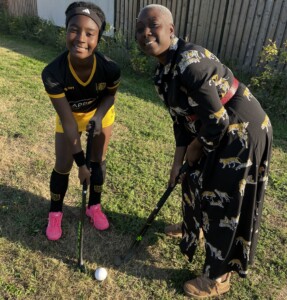 How old are you?
How old are you?
Aurora Belén: 14
Maureen: 51
Favorite sport?
Aurora Belén: hockey (and previously also horse riding and football)
Maureen: boxing and cycling; I have always done gymnastics and athletics
Favorite song?
Aurora Belén & Maureen: we don't really have a favorite, but ZAAZAA by Frenna is a good fit
What are you most proud of?
Aurora Belén: that I have already played three National Championships
What would you do with a million in the lottery?
Aurora Belén: setting up a hockey club in Suriname and buying a horse
Maureen: buying a house in Valencia and especially making sure Aurora is well taken care of
What do you want for children in Breda?
Maureen: Peace, happiness, and a smile every day. When things are going well in sports, they come off the field laughing – win or lose doesn't matter, it's all about the game.
Pleunie is 12 years old and loves drawing, manga, and especially singing. She has juvenile rheumatoid arthritis and lives with chronic pain. With the help of the Breda Youth Fund for Sports and Culture, she's been taking singing lessons at Nieuwe Veste for years. And that means much more than just an hour of singing a week. Her mother, Marlies, explains why.
Starting over again
A few years ago, everything collapsed. We had no home, no money. Pleunie and I had to start all over again. We were both chronically ill and were under guardianship. Fortunately, we received excellent help right away – from Zorg voor Elkaar (Care for Each Other), which included the Youth Fund. They saw us. They helped us with what we could. And then things started to grow, little by little. We got a suitable home, the right care, and are now slowly starting to breathe again.
Looking at what is possible
At home, we work with a wish list instead of a problem list. We don't focus on what's difficult, but on what's possible. And singing had been on Pleunie's list for a long time. It was her dream. But that seemed like an impossible luxury. Until the Youth Fund came into the picture. They made it possible.
Singing seemed an impossible luxury until the Youth Fund came into the picture. They made it possible.
Singing as a support
For Pleunie, singing is her medicine, her energy. When she sings, she's not preoccupied with pain or limitations. She feels free. She says, "I can take singing with me everywhere." Her talent truly helps her: when Pleunie sings, she experiences less pain.
No limitations but talent
During singing lessons, we don't focus on what's not working, but on her strengths. Her teacher, Mr. Joost, adapts to her abilities. That gives her confidence. Even when she's feeling down, she just keeps going. Because it gives her so much. She's so determined about it.
The power of choices
I've learned that some things just happen to you. You have no control over them. But other things you can choose. Like how you deal with them. Whether you give up or find what gives you strength. For Pleunie, that's drawing, crafting, singing. She knows what her inner fire is—and I'm proud that she feels it so well.
Giving and passing on
Thanks to the help we received, we can now give something back. I now work part-time in home care, and we're even passing on things. Pleunie knows exactly how valuable that is. And we're trying to reach out to other parents: don't be ashamed to ask for help. There are more people in this situation than you think. And there are organizations like the Youth Fund that can really help you.
Hope grows slowly
The help we received planted seeds. And now there are little trees growing in our garden. That's how it really feels. We're not there yet – but I also see in other people that you can always move forward. I haven't become bitter: I want to set a good example for my daughter. Truly, if you keep looking at what is possible, something beautiful will always come your way.
Facts about Marlies
How old are you? 48 years
What is your favorite sport? Haha, I like free fighting and I trained for it once. And soccer and dancing.
What's your favorite song? The old rock band I sang in played Guns N' Roses' “Sweet Child Of Mine” especially for us.
What are you most proud of in relation to sports, culture or work for the Youth Fund? On the primal power that the two of us have.
What would you do if you won a million in the lottery? Fulfill Pleunie's wish list and help back all the organizations that helped us. Because so many people need it.
What do you wish for children in Breda? A safe and healthy living environment, equal opportunities and enjoyable leisure activities.
Marleen Veldhoven from Schiedam has been volunteering at the local clothing bank for nine years. There, she sees every day how families struggle to make ends meet. She also faced this reality at home. Her "bonus son," Chris (16), wanted to join the gym, but they didn't have enough money at the time. An application to the Youth Sports & Culture Fund made it possible. And now Chris is healthier and happier than ever.
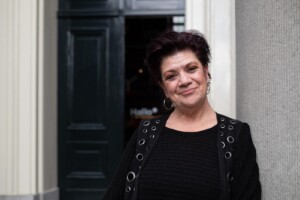
He really wanted to work out
Marleen found the Youth Fund for her step-son, Chris (16). "He really wanted to work out, but we simply couldn't afford it at the time." She applied to the Youth Fund, and Chris has been enjoying working out for two years now. "He feels fitter and is more comfortable in his own skin. His whole lifestyle has changed! He used to love sweets and energy drinks, but now he really pays attention to his diet. Instead of just hanging around, he now goes to the gym three to four times a week."
Don't feel ashamed
Perhaps what Marleen finds most beautiful is that Chris has never felt 'different'. "There's no shame. No one there realizes he's playing sports through the Youth Fund, and they don't need to. He's just part of it. That's what it's all about." For Marleen, applying for help wasn't a difficult decision. "I didn't feel any shame. Why should I? You do it for your child. You give him something that makes him happy, that makes him healthier."
Yet she notices that not everyone around her feels the same way. "Some parents are ashamed. Often, their pride gets in the way. And then I say: put that pride aside. Really, give it to your child. If necessary, get a friend to help you submit an application."
A fund that really makes a difference
Marleen is happy that the Youth Fund for Sports & Culture is available in the municipality of Schiedam. "It's so important that it continues to exist. I see it with friends in my neighborhood too: their children are involved in dance or soccer—all through the Youth Fund. It really makes a difference."
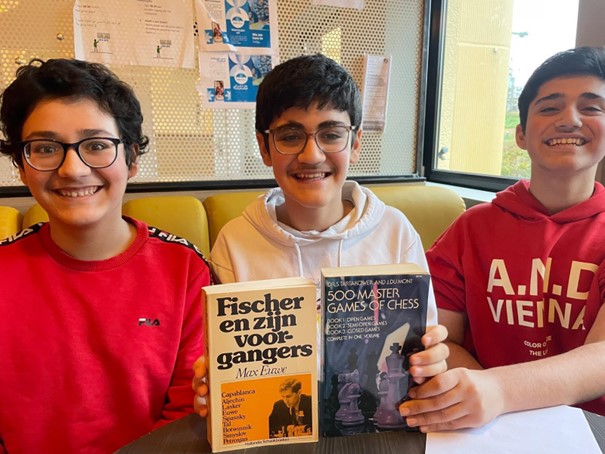
15 months ago, the Saricicek family fled Turkey for political reasons. It suddenly became Too dangerous for the family: Father, mother, and three sons, Ahmet (17), Bilal (15), and Vahap (13), left Antalya on the spur of the moment, leaving all their belongings behind. They eventually ended up at the COA (Central Agency for the Reception of Asylum Seekers) in Amsterdam via Biddinghuizen, and intermediary Mark Aardenburg put them in touch with the Youth Fund Amsterdam. We went to visit them there.
Dutch language
All three of them already speak incredibly good Dutch, thanks to their school, they say, where they receive 22 hours of Dutch lessons a week. They're also good at math, no wonder, considering their mother was a math teacher in Turkey. Their father worked in education for autistic children but was fired for his political beliefs.
Her mother also speaks excellent Dutch, which she considers very important because she wants to help her children. "To be able to participate fully in this society, speaking and writing correct Dutch is paramount. She herself had a fantastic language partner, but unfortunately, he passed away. Now she's taking a new Dutch course through Right 2 Education."
Learned at a young age...
Father is an enthusiastic chess player and taught his sons from a very young age, from the age of 5th, chess. Now they attend the Isolani chess club and have lessons every Thursday with Jan Nijhof, and Rafıek Mohamedjoesoef loves it. The eldest, Ahmet, is the best, according to his brothers, and is making a name for himself in the Amsterdam chess world. He recently won the Chaturanga Grand Prix 2024 and took first place in the Science Park Open tournament held this summer, scoring 8.5 out of 9. They play chess against each other for over an hour a day.
Impressed
Besides chess, they naturally fill their time with homework, cycling, hiking, and playing ping-pong at the asylum seekers' center. This family has incredible strength, humor, and perseverance, despite their difficult situation. We said goodbye amidst much laughter. "Thank you for the chess lessons; my children are so much happier. They really learn a lot at chess club: it's also so good for their Dutch, and they make new friends," their mother concludes.
My children are so much happier! They're really learning a lot at chess club: it's so good for their Dutch, and they're making new friends.
“Er zijn veel kansen, maar je moet ze wel pakken”
Caroline (45) en Collins (40) wonen met hun twee dochters in Amsterdam Nieuw-West. Beide meiden zijn gek op dans, theater en muziek. Celina (8) zit op toneel- en pianoles. Carita (13) volgt balletlessen. Deze kerstvakantie schittert Carita samen met Paul de Leeuw op het podium van Het Kerst Muziekgala 2024.
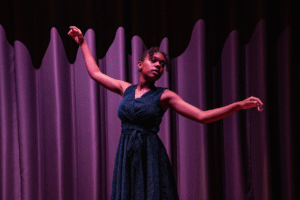
Caroline vertelt dat haar hele familie betrokken is bij het grote optreden van haar dochter Carita. Haar broer Carlos – zelf ook modern balletdanser – helpt mee met de choreografie. Haar schoonzus regelt eten voor de tijdens repetities en haar man Collins rijdt dochterlief op en neer. “Carita is ontzettend perfectionistisch. Ze is daarom vooral bezig met of alles wel goed gaat. Ik denk dat ze zich pas realiseert hoe groot dit is, als ze zichzelf straks in de tv-uitzending ziet,” aldus Caroline. Het optreden is onderdeel van Het Kerst Muziekgala dat wordt georganiseerd door Méér Muziek in de Klas.
Culturele activiteiten
De Braziliaanse Caroline woont al 16 jaar in Nederland. Toen ze vanuit Brazilië hier aankwam, moest ze alles leren: de taal, de cultuur, het ambtelijk systeem. Ze ging uiteindelijk aan de slag als stadsgids voor toeristen. En ze ontmoette haar Ghanese man Collins. Toen hun dochters er eenmaal waren, verwonderde ze zich over het feit dat Nederlandse kinderen zoveel culturele nevenactiviteiten doen.
“In Brazilië gaat niet iedereen naar een ballet- of dansschool. Dat kost heel veel geld en kunnen de meeste gezinnen niet betalen. Ik danste wel toen ik klein was, maar alleen af en toe op school,” vertelt ze. “Mijn man komt uit Ghana. Ook daar krijgen kinderen maar weinig kansen op cultureel vlak. Het is geweldig dat kinderen dat hier wel allemaal naast school doen. Het levert zoveel op. Ze maken vrienden, blijven van straat, krijgen discipline, zitten niet de hele tijd op hun telefoon!”
Balletles met steun van het Jeugdfonds
Celina volgde piano- en theaterlessen. Carita werd toegelaten bij de balletlessen van het Nationaal Ballet. Caroline: “Het was fantastisch om te zien hoe zij hier opbloeide, ze heeft erg veel talent.” Maar toen brak corona uit. Caroline kwam zonder baan te zitten en het lukt niet meer om de lessen van haar dochters te betalen. Gelukkig werd zij op het Jeugdfonds Sport & Cultuur gewezen. Met steun van het fonds kon Carita – zij het bij een andere balletschool – uiteindelijk weer balletten.
Meer zelfvertrouwen via dans
Ondertussen werkt Caroline bij de HEMA. Collins zit in de ICT. Toch hebben ze om alles rond te breien, en hun dochters te kunnen laten dansen en zingen, steun van het Jeugdfonds nodig. “Het is geweldig dat zoveel kinderen door het Jeugdfonds tóch mee kunnen doen,” aldus Caroline. “Carita is ondertussen ontzettend gegroeid. De danswereld is een vrij competitieve omgeving. Soms moet je een beetje durf tonen, naar voren stappen. Dat is niet iets wat je in de Braziliaanse cultuur meekrijgt. Het was ons vaste contactpersoon van het Jeugdfonds Amsterdam, Elvira, die aanstipte dat het om wat meer zelfvertrouwen te krijgen een idee was om ook balletles te gaan géven.”
Nu geeft Carita op haar balletschool les aan kinderen van vijf tot acht jaar. En op zaterdagochtend aan kinderen uit Nieuw-West in het buurthuis bij haar om de hoek. Het was ook het Jeugdfonds dat opperde dat Carita een geschikte kandidaat voor een optreden bij Het Kerst Muziekgala zou zijn. Terwijl Paul de Leeuw het nummer ‘Ik heb je lief’ zingt zal Carita een ballet performance neerzetten. De show wordt uitgezonden op NPO1.
Pak je kansen!
Caroline hoopt dat ze door het delen van haar verhaal meer ouders met een andere culturele achtergrond of die niet zo goed Nederlands spreken kan inspireren. Ze wil benadrukken dat je achtergrond echt niet uitmaakt als je in Nederland je droom wilt waarmaken: er zijn zoveel kansen. “Maar je moet ze wel pakken, jezelf laten zien – en weten waar je steun kan krijgen. Dat wil ik alle ouders meegeven.”
Mandy, from Lelystad, is the mother of her daughter, Deyjah. They both love sports, and with the help of the Youth Fund for Sports & Culture, Deyjah is able to participate in resilience training. Since Deyjah has heart problems and seizures, this provides her with a welcome outlet. Mandy also participates in sports herself with support from the Adult Fund.
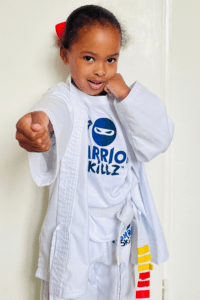
The enthusiastic Deyjah (4 years old) is just starting her second year of Warrior Skillz. This is a dynamic and energetic combination of physical and mental resilience training. I ask what she does during a class. "I'm going to show you," she says. She puts a fist to her cheek and punches forward with her other hand. Her favorite part of the class is tag. It always comes at the end: "You have to choose someone, and whoever you 'chose' gets to be the tagger."
Warrior Skillz
Mandy adds that Warrior Skillz comes with a hefty price tag. "It's really impossible without the fund," especially since Deyjah also takes swimming lessons, which Mandy pays for herself. "Swimming is practically a must when you live in such a water-rich environment like we do." She also believes it's important for her daughter to be able to defend herself. Thanks to the Youth Fund, Deyjah can now do both. Mandy is grateful for this because she sees a big difference in her daughter. "Deyjah really enjoys sports and she's a very sociable girl. I see that she has a lot of fun and needs it, and thinks the teacher and the children are fantastic." While she didn't always stand up for herself before, Mandy now sees that she's good at setting her boundaries because she knows what she's capable of.
Swimming
'"We're real water people. It's just wonderful. You don't feel your whole body. You use all your muscles without even realizing it," says Mandy. With support from the Adult Fund, she combines fitness and water sports in the pool. She also enjoys swimming with her daughter whenever possible.
Deyjah sometimes finds swimming daunting, but she loves diving. "That's my favorite." She met Lauren through swimming lessons. Mandy: "Deyjah makes drawings and art for Lauren. She's truly her best friend. That's so sweet." Lauren's mother has also become a friend of Mandy's.
Jeugdfonds
Mandy wants every parent to know about the Youth Fund. It wants all children to be able to participate in sports without overtaxing their budget. "Children need it, otherwise they only see the kids from school. They build new connections. I think it's fantastic." According to Mandy, the fund is a tremendous support: "Lessons are paid for a year, so you don't have to worry about that anymore. Plus, after a year, you can choose something else if your child doesn't like it anymore, which is also great. Although Deyjah is currently having a great time at Warrior Skillz." She tells everyone about it. "It's there, so why wouldn't you take advantage of it?"
Finally, Mandy would love to do something together with her daughter, like theater. "I think it would be so much fun to act with her." They do that often at home, and they also joke around a lot. That also helps them cope with the many hospital visits and the worries. Right now, there's no time or opportunity for theater classes, but who knows, maybe in the future.
Natascha is the mother of daughter Djelayza and son Djodecy. As a single parent with two growing children, it can be difficult to make ends meet. Thanks to a little support from the Limburg Youth Sports and Culture Fund, both children can participate in a sport of their choice. "You hope the children can still play sports with other children. I think the social connections they make this way are very important; it also contributes to their social and emotional development."
Djelayza has been enjoying hip-hop for two years now. Djodecy has been playing soccer for two months. "He wasn't sure what sport he wanted to play, so it took a while. In the end, he chose soccer." Natascha believes it's important for her children to be active. "I think team sports are very good for a child's development, as long as they're ready for it. This happened to my daughter early on, but my son struggled a bit. Playing sports gives them more social contact, which they really enjoy. It also gives them less time to focus on screens. Sports are a great outlet for them."
You don't have to do it alone
Natascha knows what it's like not being able to do everything. To ensure her children can participate in sports, she accepted support from the Limburg Youth Sports and Culture Fund. "I also thought I could do everything on my own. But life has become so expensive that you quickly cut back on sports and culture. The stumbling block isn't the membership fee, but usually the equipment you need for sports. All in all, the total cost is often the problem. Yet, sports are so important for children's development. So my advice to parents who can't afford to let their child(ren) participate in sports and culture: inquire—for example, at school—about the Youth Sports and Culture Fund, and don't let your child(ren) miss out on this opportunity!"
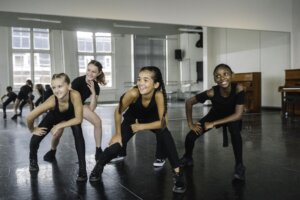
Participating in sports and culture helps your child become a more fully integrated member of society. This isn't just about the present, but also about the future. You're teaching your child: You can do this! You can create it yourself!
Liedewij is the mother of two girls, aged 11 and 14. She believes making music is very important for her children. It contributes to their cultural development. They develop skills that will benefit them now and in the future. Making music fosters recognition and recognition. As a child, you discover your potential and gain self-confidence, which allows you to show your talent to others. First, you play at home and in lessons, and later, for example, on the piano at the station and in the school auditorium. It gives you the feeling of "I can do this!"
Meaning of sports and culture
Sports are more ingrained in children's minds. They're healthy, fun, and accessible. Exercise is important for children's health. It promotes belonging, teamwork, social development, and connecting with other (age) groups. Liedewij finds that culture is more difficult to capture within that social framework. She sees culture and music lessons more as the development of one's worldview. If, as a child, you become familiar with various cultural movements, from music and dance to crafts, you gain a broader frame of reference for the world.
A few years ago, Liedewij retrained and consciously chose to start her own business, doing what truly resonates with her, alongside volunteering in and around Breda. Finding a good balance between caring for her family and her husband's business is important to her. Because of all these New Year's resolutions, they have to be frugal with their expenses. When you can settle for less, you experience what's truly important for your children. She also appreciates the variety of opportunities in Breda to support her children's development.
Using the BredaPas, she submitted the applications for her children's music lessons herself through the Jeugdfonds Sport & Cultuur Breda website. With the help of the fund, the children have been taking lessons at De Nieuwe Veste for six years now. They also play a lot of music at home, with Liedewij helping her children and playing along. They were able to pick up the piano for free, and now there's a real instrument in the room, which is fantastic. This makes playing and unwinding from the mental stress of school even more accessible. Besides cultural lessons, the children also get active. They cycle together and have participated in sports like dancing and skating. As the children get older, they are more aware of their fitness and want to actively work on it.
Advice to providers
Her advice to providers is to involve parents more in their child's development. Make the request for help clear and practical. For example, ask each school what their target group is and what approach they expect to best inspire parents and children in arts and culture. Get to know the parents well and find out what their resilience is. If volunteer help is needed on a regular basis, a parent might be willing to organize it for a small fee. She also believes it's important to involve children from an early age, such as providing artistic insights into the hobbies of the children in your class or club.
Advice to parents
She encourages parents to consider Sports and Culture as part of their child's social development. It allows a child to participate more fully in society, leading to more engaged individuals in the future. Having something you're good at or can express yourself at gives you confidence. It makes you feel like you matter! You want this for your child. That little extra time to complete an application opens up new opportunities you might not have otherwise had, or didn't know existed. It's fantastic that this is so well-organized in Breda!
There are plenty of parents with limited financial resources who are often underestimated. In fact, they're often incredibly creative and innovative in their efforts to make it all work. The solution lies in stepping out of the victim role and becoming stronger. What do you stand for in your family? Your children will see this example. Be proud of what you can make possible. With a single application to the Youth Fund for Sports & Culture, you can have fun for the whole family for a whole school year. And again the following year. By engaging with Arts and Culture, you learn to create. This is what Liedewij wants to share in this interview.
Facts about Liedewij
How old are you? 46 years old.
What is your favorite sport? Cycling through the city and oriental dance.
What's your favorite song? I love music made by singer-songwriters.
What are you most proud of? On my children.
What would you do if you won a million in the lottery?
I certainly wouldn't spend the money all at once or on material things. I would use it to pay for my children's education and invest in their future growth.
What do you want for children in Breda?
A nice time to look back on.
Spoken word artiest, student en maatschappelijk betrokken jongere Séun Steenken weet wat het is om op te groeien in een actief gezin waar het belangrijk was dat de kinderen hun passie volgden. Ook als het soms niet gemakkelijk was om de eindjes aan elkaar te knopen.
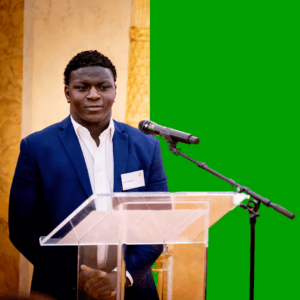
Séun studeert Bestuurs- en Organisatiekunde, zet zich op diverse manieren in voor de maatschappij en heeft een passie voor sport, politiek en cultuur. “Ik ben opgegroeid in een druk en actief gezin. Ik zat op judo, mijn zus op paardrijden. Hierdoor waren mijn ouders altijd druk bezig met halen en brengen,” lacht Séun. “Ze waren altijd betrokken, zaten op de tribune, kwamen kijken naar wedstrijden. En dat terwijl er financiële en gezondheidsproblemen waren die extra druk op het gezin legde. Zo is mijn zusje verstandelijk beperkt, dat zorgt ervoor dat ze op een hele andere mooie en creatieve manier naar de wereld kijkt. Maar ze had daardoor ook meer aandacht en zorg nodig.”
Dunne grens
Mensen hebben vaak niet door hoe dun de grens is tussen wel of niet rondkomen. Vaak wordt er gedacht dat er veel mis moet gaan voordat iemand in de financiële problemen beland. Maar vaak kunnen een paar kleine veranderingen er al voor zorgen dat iemand te maken krijgt met geldzorgen. Bij mij waren deze veranderingen dat mijn vader zijn baan verloor en mijn moeder vanwege gezondheidsproblemen niet meer kon werken. We zaten toen financieel heel krap. Dat was moeilijk. Mijn ouders wilden niet dat de geldzorgen het leven van mijn zus en mij zou beïnvloeden. Via de basisschool werden ze gewezen op het Jeugdfonds. Zo kon ik toch op judo blijven.”
Waarden voor het leven
Judo was belangrijk voor Séun en ook voor zijn vader. “Judo was onze gezamenlijke hobby, superfijn dat we dat samen konden doen. Deze hobby heeft aanzienlijk bijgedragen aan mijn ontwikkeling. En dan gaat het niet alleen om het fysieke. In judo zijn waarden als respect, solidariteit, samenwerking en balans heel belangrijk. En op de club is iedereen gelijk. Op de mat kun je heel hard tegen elkaar judoën maar daarna ben je beste vrienden. Je brengt elkaar verder. De waarden die ik daar geleerd heb, zijn míjn waarden geworden. En het gaf ritme en structuur. Een aantal keer in de week sta je klaar in je judo pak. Moe of niet. Ik heb er discipline en doorzettingsvermogen geleerd. Uiteindelijk heb ik op nationaal niveau gejudood.” Dit laat echt zien wat voor bijdrage sport en cultuur kan leveren op de algemene ontwikkeling van een kind.”
Maatschappelijk actief
Séun is een hartstochtelijk beoefenaar van spoken word. “Op de middelbare school waren we in de pauze vaak aan het freestylen. Daar heb ik ontdekt dat ik goed kan improviseren en spelen met taal. Dit combineer ik in mijn spoken word voordrachten met mijn interesse in de maatschappij. Hierin neem ik ook mijn eigen ervaringen met maatschappelijke problemen zoals discriminatie en racisme, het ervaren van minder kansen en het leven met minder financiële middelen mee. In mijn werk vind ik het belangrijkst dat ik oprecht een bijdrage kan leveren, al is het maar voor één persoon. Dit probeer ik nu onder andere te doen via mijn rol bij de Maatschappelijke Inspiratieraad (MIR) van de Nationaal Coördinator Discriminatie en Racisme en in mijn baan als beleidsmedewerker bij Cliëntenbelang Amsterdam.”
Je bent niet de enige
Séun hoopt dat hij kinderen en jongeren kan inspireren met zijn verhaal en leven. “Ik denk vaak aan de kleine ik en waar ik nu ben. Doordat er niet echt in mijn directe omgeving over geldzorgen werd gesproken, leek het alsof ik de enige was die dit ervaarde. Naarmate ik ouder werd kwam ik er pas achter dat er veel meer mensen waren in mijn omgeving met een soortgelijke ervaring. Ik denk dat het belangrijk is dat we elkaar weten te vinden en open met elkaar durven te praten ook als het minder gaat. Helemaal in ons huidige digitale tijdperk waarin je online structureel wordt geconfronteerd met wat je niet hebt, is het belangrijk om te beseffen dat je niet de enige bent waarbij het leven iets anders loopt dan bij andere. Zoveel mensen hebben geldzorgen. Je bent niet de enige. Spreek je uit, vraag hulp. Dat is eng maar het gesprek aangaan, kan nieuwe mogelijkheden creëren. Ik hoop door zelf open te zijn over de dingen die ik heb ervaren in het leven, aan mensen te laten zien dat je er niet voor hoeft te schamen als je leven (financieel) iets anders loopt dan bij anderen."
Tijdens een landelijke Jeugdfonds dag, zei Séun dit tijdens een spoken word optreden:
Wanneer ik om me heen kijk
En kijk in mijn leven
Naar de mensen die om me geven
Heb ik ze verkregen door mijn sportieve leven
Dus eigenlijk hebben jullie mij vrienden gegeven
Marisca verhuisde met haar zoon (14) in 2019 vanuit Suriname eerst naar België en vervolgens in 2022 naar Nederland. Haar zoon heeft een lichamelijke beperking. Een beperking waar in Suriname niet de goede zorg en begeleiding voor was. Bovendien werd hij buitengesloten. Nu zit hij op school en kickboksen. Een sport die hem in alle opzichten sterker maakt. ‘Hij is veel gelukkiger nu.’
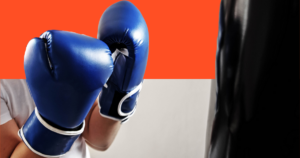
Marisca merkte vrij snel dat haar zoon zich langzamer ontwikkelde dan andere kinderen van zijn leeftijd. Hij maakte ongecontroleerde bewegingen en was iets langzamer van begrip. Het was lastig om in Suriname goede zorg te vinden. De artsen wisten niet hoe ze hem konden helpen, leerkrachten op school wisten niet hoe ze met hem om moesten gaan. Vaak werd hij gewoon buiten de klas gezet. Ook werd hij erg gepest door de andere kinderen. Voor Marisca reden genoeg om naar Nederland te verhuizen.
Hij is geen uitzondering meer
“In Suriname kreeg mijn zoon niet de zorg en begeleiding die hij nodig heeft, hier wel,” zegt Marisca. “En hij gaat hier naar het speciaal onderwijs. Dat is heel fijn. Hij ontwikkelt zich verstandelijk goed, maar heeft gewoon meer tijd nodig om dingen te begrijpen. Op een gewone school heb je die tijd niet. Bovendien is hij op school geen uitzondering meer. Hij hoort er gewoon bij. Er zijn meer kinderen zoals hij. Hij wordt niet meer gepest.”
Meer controle
De revalidatiearts bracht Marisca in contact met Shoshanna van de Esther Vergeer Foundation. “Shoshanna heeft alles voor ons geregeld. Ze heeft uitgezocht welke sporten geschikt waren en of hij die in de buurt kon doen. Mijn zoon koos voor kickboksen. Niet omdat hij wil vechten, maar omdat hij zich wil kunnen verdedigen. Het geeft hem zelfvertrouwen dat hij zich kan verdedigen. Hij is in Suriname zoveel gepest, dat wil hij niet meer meemaken. Het kickboksen heeft hem in alle opzichten sterker gemaakt. Hij is gelukkiger. En ik zie dat hij meer controle heeft over zijn bewegingen. Hij kan beter omgaan met zijn stoornis. Dat wordt bevestigd door de ergotherapeut. Het heeft direct invloed op zijn schoolprestaties. Hij schrijft en praat beter.”
Marisca is helemaal opnieuw begonnen, heeft alles moeten achterlaten. “Ik doe het met liefde. Hij wil nooit meer terug, dat weet hij zeker. Dat pesten heeft zoveel schade veroorzaakt. Hier voelt hij zich veilig en heeft hij vrienden. Mijn zoon is veel gelukkiger. En als hij gelukkig is, ben ik dat ook.”
Facts & numbers
children and young people became members of a club through us in 2024.
in 2024, children and young people became members of a sports club through us.
in 2024, children and young people became members of a cultural club through us.
issued sports and cultural equipment in 2024.
